Islam/Sufism

As it is mentioned in the homepage, religion and spirituality is the main focus of our small publishing house.
We are developing a couple of crucial publishing projects to boost our work and presence in the UK. One of these projects is focused on Islam with a particular attention to Sufism.
Sufism (known in Arabic as tasawwuf) «possessing as it does the dual aspects of wisdom and the love of God, it finds expression not only in metaphysical doctrines, but also in poetry and the visual arts, and, as its essence is communicated most directly in symbols and parables, it can speak without hindrance not only to learned believers, but also to the simple man of the people: the craftsman and the Bedouin; in fact, it may often be more readily accessible to the unlearned than to the learned.
[…]
Its point of departure is tauhid, the doctrine of Divine Unity. If Islamic law demands, as the first duty of every believer, that the “testify” to the unity of God, Islamic mysticism requires that this attestation (shahada), should not be merely with the lips, nor even merely with the mind, but that, beyond all reflections and sentiments, it should be a total and immediate act of testimony or witness (shahada); this means nothing other than the knowledge of God».
We are developing this website even as a portal of books. In this page, still “dramatically” in progress, we promote what we can consider interesting literature on Islam and Sufism (in our general catalogue, in the homepage, you find a couple of introductory books: Insights into Islamic Esoterism and Taoism, by René Guénon – alias Shaykh ‘Abd al-
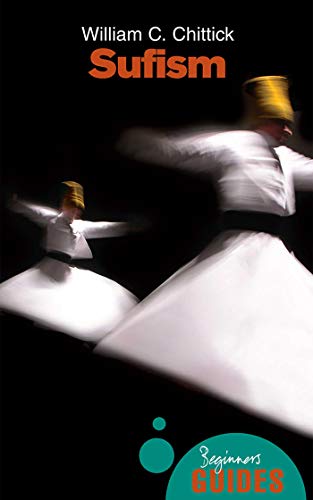 What is mysticism? What does sufism mean today?
What is mysticism? What does sufism mean today?
William C. Chittick, the leading scholar in the field, offers a compelling insight into the origins, context, and key themes of this fascinating movement. After a general overview of the tradition, he draws upon the words of some of the greatest Sufi writers – among them Ibn Arabi, Baha Walad and Rumi himself – to give a fresh and revealing perspective on the teachings and beliefs of Sufism and its proponents. Fresh and authoritative, this sympathetic book will be appreciated by anyone interested in Sufism, from complete beginners to students, scholars and experts alike.
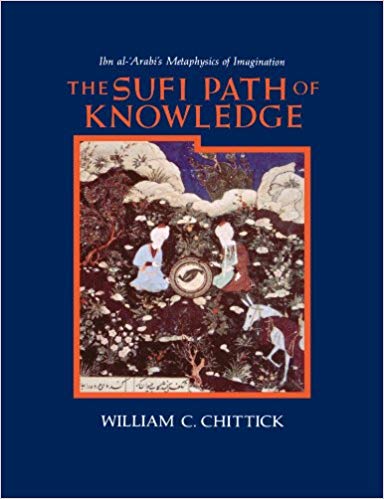 Ibn al-‘Arabi is still known as “the Great Sheik” among the surviving Sufi orders. Born in Muslim Spain, he has become famous in the West as the greatest mystical thinker of Islamic civilization. He was a great philosopher, theologian, and poet.
Ibn al-‘Arabi is still known as “the Great Sheik” among the surviving Sufi orders. Born in Muslim Spain, he has become famous in the West as the greatest mystical thinker of Islamic civilization. He was a great philosopher, theologian, and poet.
William Chittick takes a major step toward exposing the breadth and depth of Ibn al-‘Arabi’s vision. The book offers his view of spiritual perfection and explains his theology, ontology, epistemology, hermeneutics, and soteriology. The clear language, unencumbered by methodological jargon, makes it accessible to those familiar with other spiritual traditions, while its scholarly precision will appeal to specialists.
Beginning with a survey of Ibn al-‘Arabi’s major teachings, the book gradually introduces the most important facets of his thought, devoting attention to definitions of his basic terminology. His teachings are illustrated with many translated passages introducing readers to fascinating byways of spiritual life that would not ordinarily be encountered in an account of a thinker’s ideas. Ibn al-‘Arabi is allowed to describe in detail the visionary world from which his knowledge derives and to express his teachings in his own words.
More than 600 passages from his major work, al-Futuhat al-Makkivva, are translated here, practically for the first time. These alone provide twice the text of the Fusus al-hikam. The exhaustive indexes make the work an invaluable reference tool for research in Sufism and Islamic thought in general.
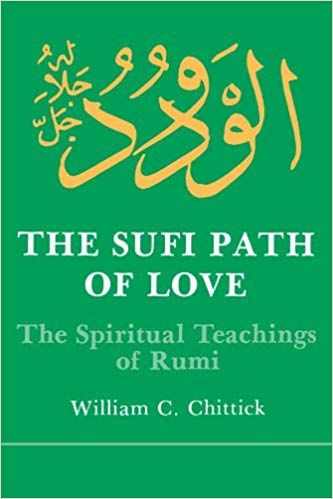 This is the most accessible work in English on the greatest mystical poet of Islam, providing a survey of the basic Sufi and Islamic doctrines concerning God and the world, the role of man in the cosmos, the need for religion, man’s ultimate becoming, the states and stations of the mystical ascent to God, and the means whereby literature employs symbols to express “unseen” realities. William Chittick translates into English for the first time certain aspects of Rumi’s work. He selects and rearranges Rumi’s poetry and prose in order to leave aside unnecessary complications characteristic of other English translations and to present Rumi’s ideas in an orderly fashion, yet in his own words. Thorough, nontechnical introductions to each chapter, and selections that gradually present a greater variety of terms and images, make this work easily accessible to those interested in the spirituality of any tradition.
This is the most accessible work in English on the greatest mystical poet of Islam, providing a survey of the basic Sufi and Islamic doctrines concerning God and the world, the role of man in the cosmos, the need for religion, man’s ultimate becoming, the states and stations of the mystical ascent to God, and the means whereby literature employs symbols to express “unseen” realities. William Chittick translates into English for the first time certain aspects of Rumi’s work. He selects and rearranges Rumi’s poetry and prose in order to leave aside unnecessary complications characteristic of other English translations and to present Rumi’s ideas in an orderly fashion, yet in his own words. Thorough, nontechnical introductions to each chapter, and selections that gradually present a greater variety of terms and images, make this work easily accessible to those interested in the spirituality of any tradition.
“I consider this work to be of great importance in the field of Islamics in particular and of the humanities in general. It is superbly conceived and guides the reader through the theory, practice, and mystical realization of Rumi’s thinking…I can think of no better way for a Westerner, and nowadays for a Westernized Muslim, to get to know the deeper aspects of the Islamic faith than through a work such as this. As far as I am aware of, it is the first work of its kind, providing the reader with a complete exposition of Rumi’s fundamental notions through Rumi’s own words. No one else has done this with the thoroughness and meticulousness shown by Chittick.” — Victor Danner, Indiana University.
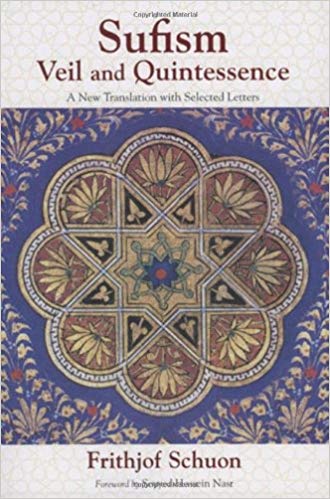 This new edition of perennial philosopher Frithjof Schuon’s SUFISM: VEIL AND QUINTESSENCE is a fully revised translation from the French original and contains an extensive appendix with previously unpublished selections from Schuon’s letters and other private writings. In seven articles Schuon makes the critical distinction between an absolute Islam and a contingent Islam thus distinguishing between the message of Islam in itself and the pious Arab expressions of that message which by their style of rhetoric have a tendency to veil it.
This new edition of perennial philosopher Frithjof Schuon’s SUFISM: VEIL AND QUINTESSENCE is a fully revised translation from the French original and contains an extensive appendix with previously unpublished selections from Schuon’s letters and other private writings. In seven articles Schuon makes the critical distinction between an absolute Islam and a contingent Islam thus distinguishing between the message of Islam in itself and the pious Arab expressions of that message which by their style of rhetoric have a tendency to veil it.
Frithjof Schuon (1907-1998) is best known as the foremost spokesman of the “Traditionalist” or “Perennialist” school and as a philosopher in the metaphysical current of Shankara and Plato. He has written more than two dozen books on metaphysical, spiritual, artistic, and ethnic themes and was a regular contributor to journals on comparative religion in both Europe and America. Schuon’s writings have been consistently featured and reviewed in a wide range of scholarly and philosophical publications around the world, respected by both scholars and spiritual authorities.
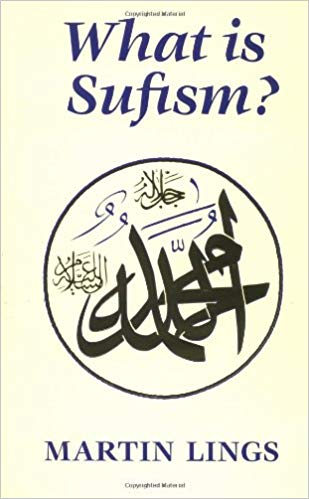 Martin Lings provides an excellent and authoritative introduction to the mystical movement of the Sufis based on his lifelong interest in Islamic culture. His explanation derives from a profound understanding of Sufism, and extends to many aspects which are usually neglected. His illuminating answer to ‘What is Sufism?’ gives a taste of the very subject matter itself. What do Sufis believe? What do they aim at? What do they do? Unlike other writers on the subject, Martin Lings treats all the three questions with equal justice. He is thus able to give a wealth of answers to the main question ‘What is Sufism?’, each answer being from a different angle but all going to the root of the matter. A reviewer wrote ‘Should the book appear in paperback, I would use it for undergraduate and graduate courses on Islamic civilization’, and in fact ‘What is Sufism?’ has become a set book in colleges and universities on both sides of the Atlantic. It is now accepted as the authoritative statement on the subject of Sufism and it has been translated into French, German, Italian and Spanish. It has also been published in Sarajevo in Bosnian, and is available in Braille.
Martin Lings provides an excellent and authoritative introduction to the mystical movement of the Sufis based on his lifelong interest in Islamic culture. His explanation derives from a profound understanding of Sufism, and extends to many aspects which are usually neglected. His illuminating answer to ‘What is Sufism?’ gives a taste of the very subject matter itself. What do Sufis believe? What do they aim at? What do they do? Unlike other writers on the subject, Martin Lings treats all the three questions with equal justice. He is thus able to give a wealth of answers to the main question ‘What is Sufism?’, each answer being from a different angle but all going to the root of the matter. A reviewer wrote ‘Should the book appear in paperback, I would use it for undergraduate and graduate courses on Islamic civilization’, and in fact ‘What is Sufism?’ has become a set book in colleges and universities on both sides of the Atlantic. It is now accepted as the authoritative statement on the subject of Sufism and it has been translated into French, German, Italian and Spanish. It has also been published in Sarajevo in Bosnian, and is available in Braille.
Martin Lings (1909-2005) was a leading member of the “Traditionalist” or “Perennialist” school and an acclaimed author, editor, translator, scholar, Arabist, and poet whose work centers on the relationship between God and man through religious doctrine, scripture, symbolism, literature, and art. He was an accomplished metaphysician and essayist who often turned to a number of the world’s great spiritual traditions for examples, though he is most likely best known for his writings on Islam and its esoteric tradition, Sufism.
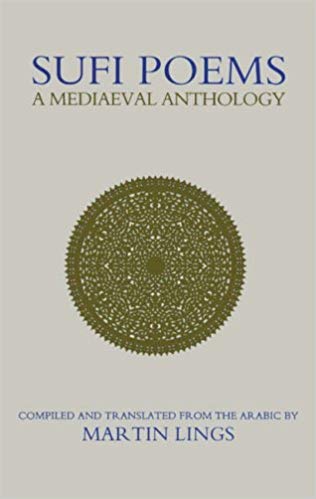 “Sufi Poems: A Medieval Anthology” is a selection of poems from the golden period of Sufism especially chosen and translated from the Arabic by the distinguished scholar Dr Martin Lings. “Sufi Poems” provides us with the opportunity to read a treasury of virtually untouched works of Arabic Sufism.—In “Sufi Poems”, Dr Lings-the author of numerous best-selling works on Sufism and a published poet in his own right-brings together selections, including poems here translated for the first time, from the giants of Sufism. These include Rabia, Ibn al-Farid and Ibn Arabi, as well as Hallaj and Ghazali. With such a selection, Dr Lings offers us a taste of the inner life of Sufism at its most intoxicating. Preceding the selection from each of the poets is an introduction to the life of the poet placing him or her in the context of Arabic Sufi poetry. “Sufi Poems” is published as a bi-lingual Arabic-English edition, which will be of interest to all those wishing to read the original Arabic and will also be helpful for university students of Arabic.
“Sufi Poems: A Medieval Anthology” is a selection of poems from the golden period of Sufism especially chosen and translated from the Arabic by the distinguished scholar Dr Martin Lings. “Sufi Poems” provides us with the opportunity to read a treasury of virtually untouched works of Arabic Sufism.—In “Sufi Poems”, Dr Lings-the author of numerous best-selling works on Sufism and a published poet in his own right-brings together selections, including poems here translated for the first time, from the giants of Sufism. These include Rabia, Ibn al-Farid and Ibn Arabi, as well as Hallaj and Ghazali. With such a selection, Dr Lings offers us a taste of the inner life of Sufism at its most intoxicating. Preceding the selection from each of the poets is an introduction to the life of the poet placing him or her in the context of Arabic Sufi poetry. “Sufi Poems” is published as a bi-lingual Arabic-English edition, which will be of interest to all those wishing to read the original Arabic and will also be helpful for university students of Arabic.
Martin Lings (1909-2005) was a leading member of the “Traditionalist” or “Perennialist” school and an acclaimed author, editor, translator, scholar, Arabist, and poet whose work centers on the relationship between God and man through religious doctrine, scripture, symbolism, literature, and art. He was an accomplished metaphysician and essayist who often turned to a number of the world’s great spiritual traditions for examples, though he is most likely best known for his writings on Islam and its esoteric tradition, Sufism.
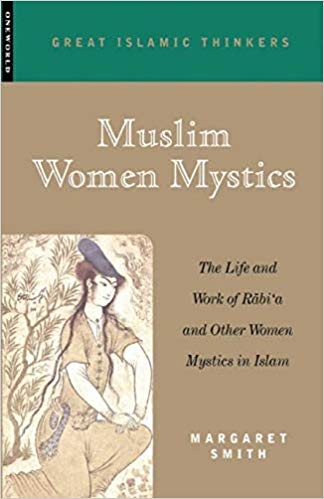 Offering authoritative coverage of an increasingly popular area, this is a stimulating introduction to both the life and times of the great Sufi thinker, Rab’ia of Basra, and to the contribution made by other women mystics to the rich heritage of Islam. Drawing on a wide array of sources, from the words of tenth-century thinkers to the works of modern scholars, Margaret Smith provides a clear and accessible guide, not only to Rab’ia’s remarkable life, but also to her asceticism, her miracles, and her teachings and writings. In addition to this, a perceptive survey traces t he roles of other female saints in Islam, from Naf sa, who recited the Qur’an six thousand times prior to her death, to the Indian princess F tima, who renounced her royal duties to become a renowned mystic.With its suggestion that the autonomy of these great female figures could serve as a religious and social model for today’s Muslim women, this is a sensitive and readable survey, which balances historical information with an interesting contemporary perspective.
Offering authoritative coverage of an increasingly popular area, this is a stimulating introduction to both the life and times of the great Sufi thinker, Rab’ia of Basra, and to the contribution made by other women mystics to the rich heritage of Islam. Drawing on a wide array of sources, from the words of tenth-century thinkers to the works of modern scholars, Margaret Smith provides a clear and accessible guide, not only to Rab’ia’s remarkable life, but also to her asceticism, her miracles, and her teachings and writings. In addition to this, a perceptive survey traces t he roles of other female saints in Islam, from Naf sa, who recited the Qur’an six thousand times prior to her death, to the Indian princess F tima, who renounced her royal duties to become a renowned mystic.With its suggestion that the autonomy of these great female figures could serve as a religious and social model for today’s Muslim women, this is a sensitive and readable survey, which balances historical information with an interesting contemporary perspective.
Margaret Smith (1884–1970) was a scholar writing on early Christian and Muslim mysticism, presenting a view from an open-minded Christian perspective. Smith was the first westerner to chronicle the life of the Sufi mystic Rábi’a of Basra, and compiled brief histories of other Sufi teachers and their doctrines, translating Arabic and Persian texts into English. She counted among her mentors Thomas Walker Arnold, Alfred Guillaume, R. A. Nicholson, and Louis Massignon.
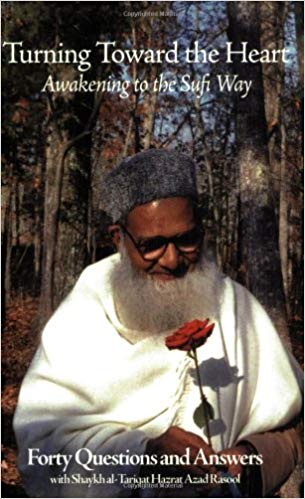 This work, in its accessible question-and-answer format, offers profound insights into the practical day-to-day aspects of the master-disciple relationship.
This work, in its accessible question-and-answer format, offers profound insights into the practical day-to-day aspects of the master-disciple relationship.
Hazrat Azad Rasool (r.a.) was born in the town of Kankroli in Udaipur, India, in 1920. From the childhood, he displayed a strong interest in spiritual pursuits. His developing mind quickly became preoccupied with esoteric questions: “Is there some power beyond the physical and mental plane of human experience? Does God exist? If God is one, why do religions differ?” Watching people pray, he wondered: “Are prayers really answered? Or do they just have psychological effects?” Such questions absorbed Hazrat from his earliest years.
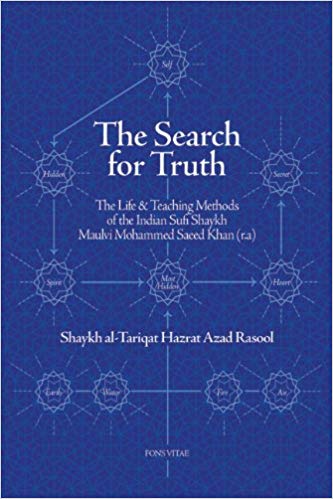 Providing insight into life and teachings of Hazrat Maulvi Mohammed Sa’id Khan, this chronicle supplements a selection of his instructions, letters, and discourses with explanatory and contextual writings from the author–Khan’s student of more than 30 years. Presented as a tribute to Khan’s life, this journal also acts as a treatise on the teaching and practice of Sufism by the Shayks and an explanation of their methodology.
Providing insight into life and teachings of Hazrat Maulvi Mohammed Sa’id Khan, this chronicle supplements a selection of his instructions, letters, and discourses with explanatory and contextual writings from the author–Khan’s student of more than 30 years. Presented as a tribute to Khan’s life, this journal also acts as a treatise on the teaching and practice of Sufism by the Shayks and an explanation of their methodology.
Hazrat Azad Rasool (r.a.) was born in the town of Kankroli in Udaipur, India, in 1920. From the childhood, he displayed a strong interest in spiritual pursuits. His developing mind quickly became preoccupied with esoteric questions: “Is there some power beyond the physical and mental plane of human experience? Does God exist? If God is one, why do religions differ?” Watching people pray, he wondered: “Are prayers really answered? Or do they just have psychological effects?” Such questions absorbed Hazrat from his earliest years.

 English
English Italian
Italian